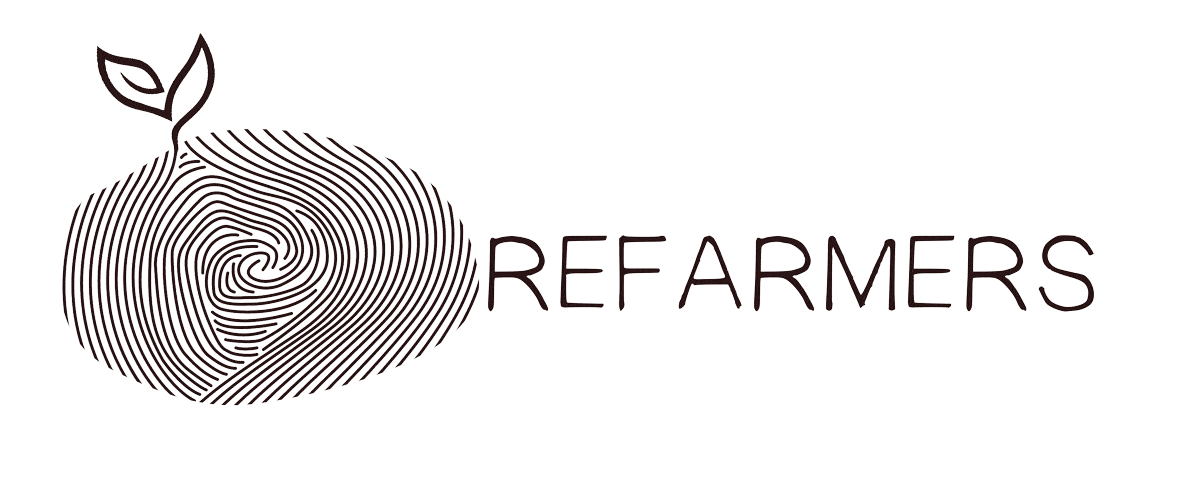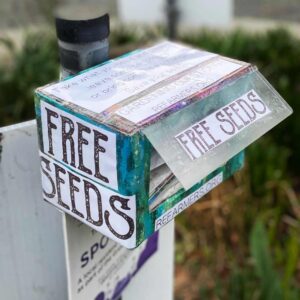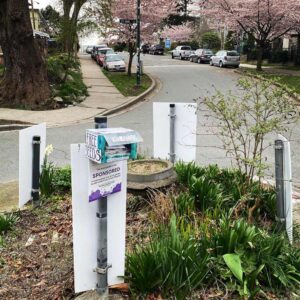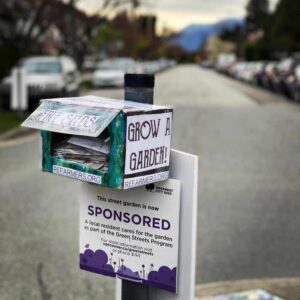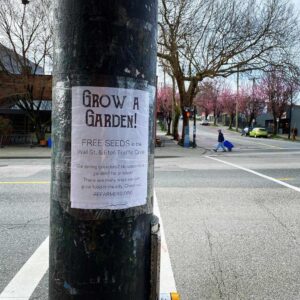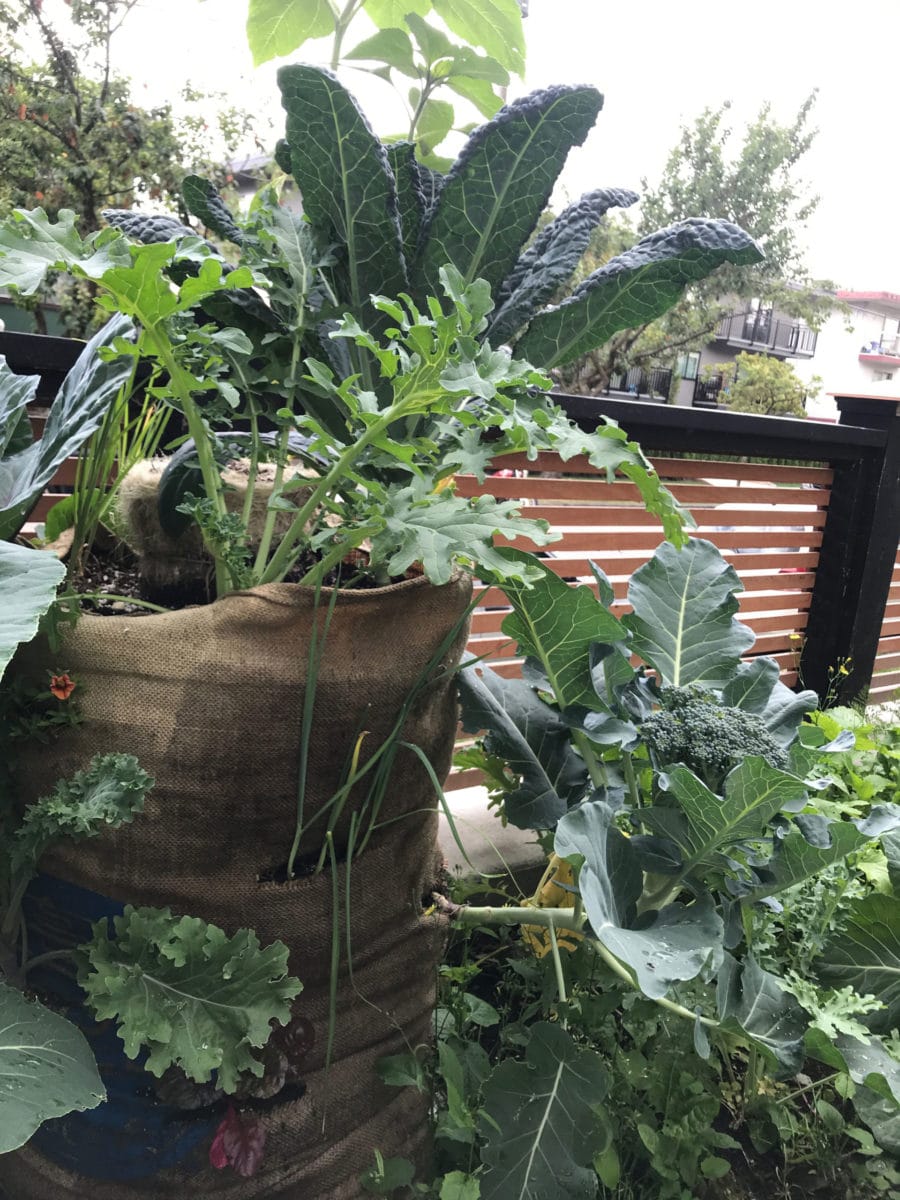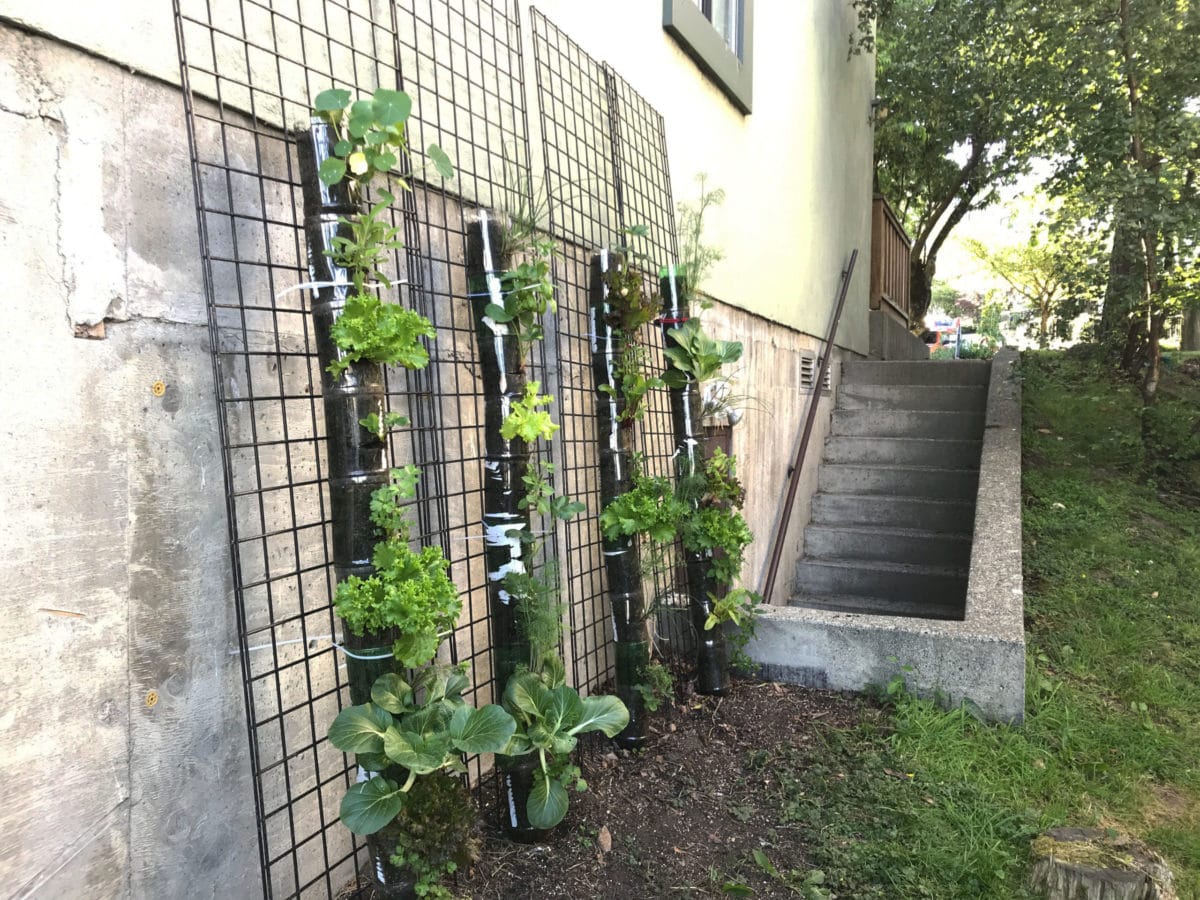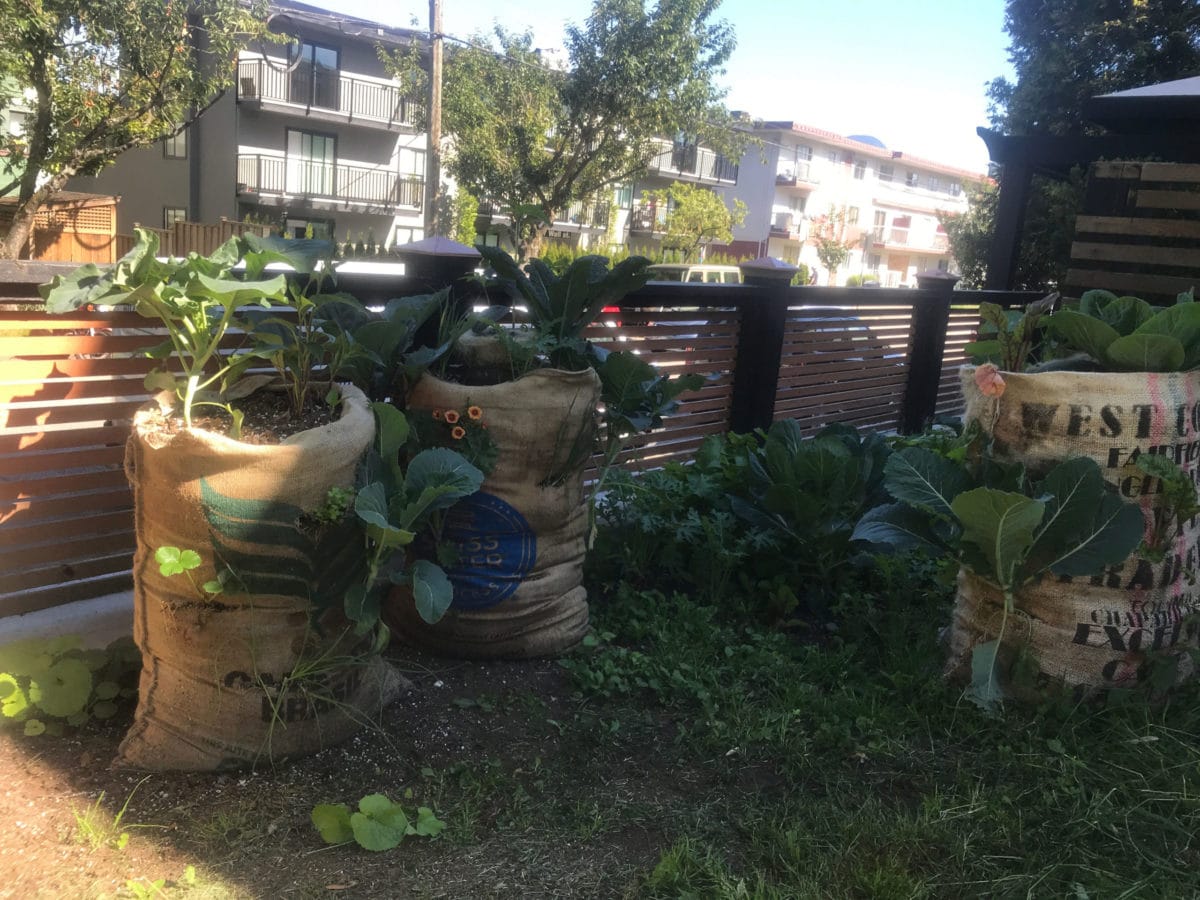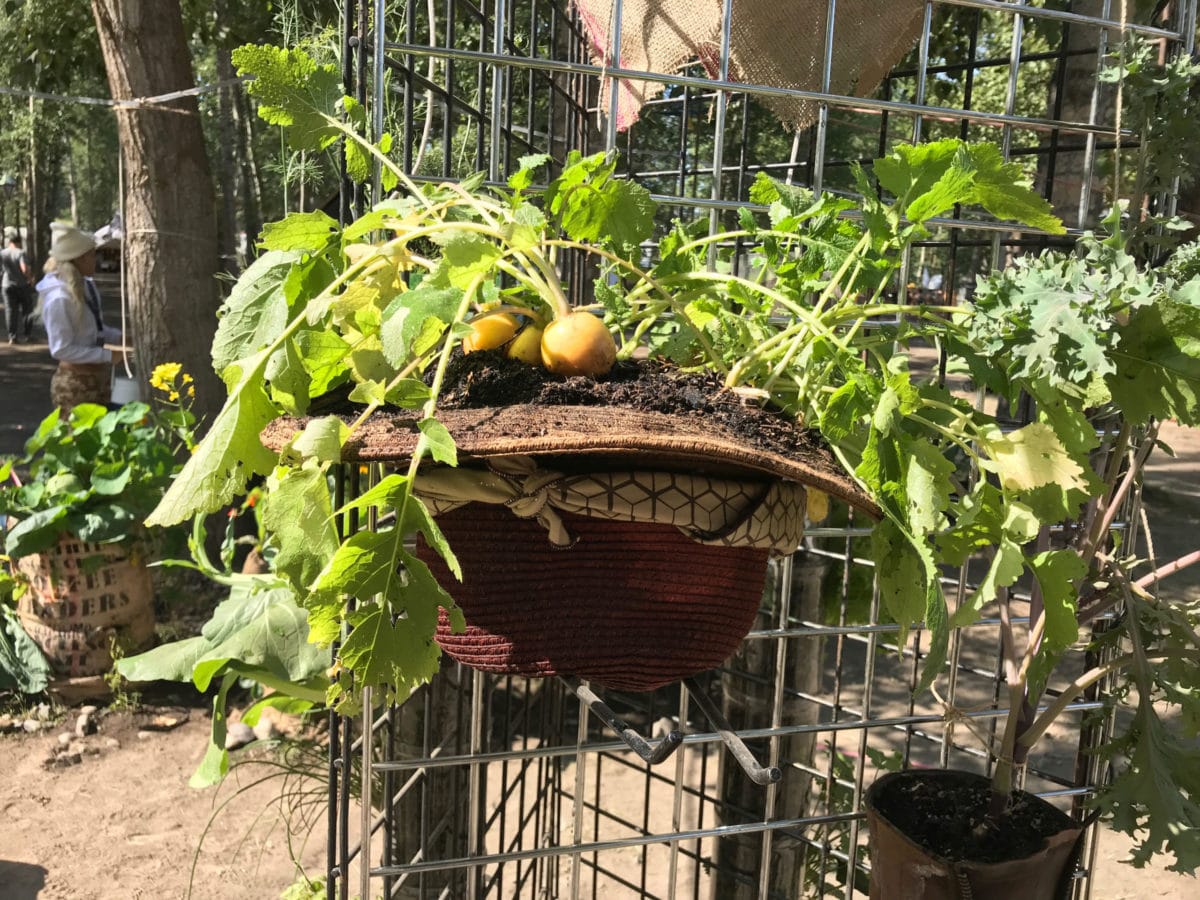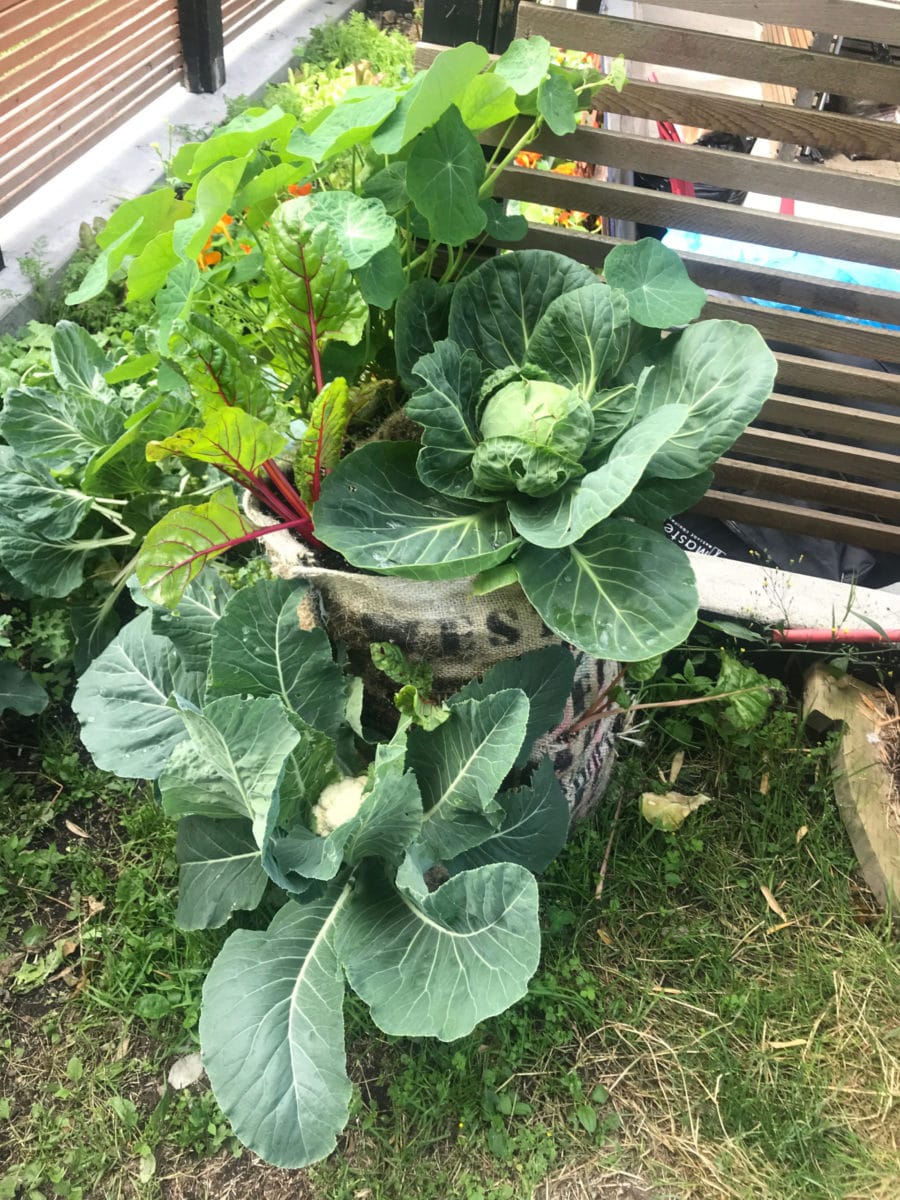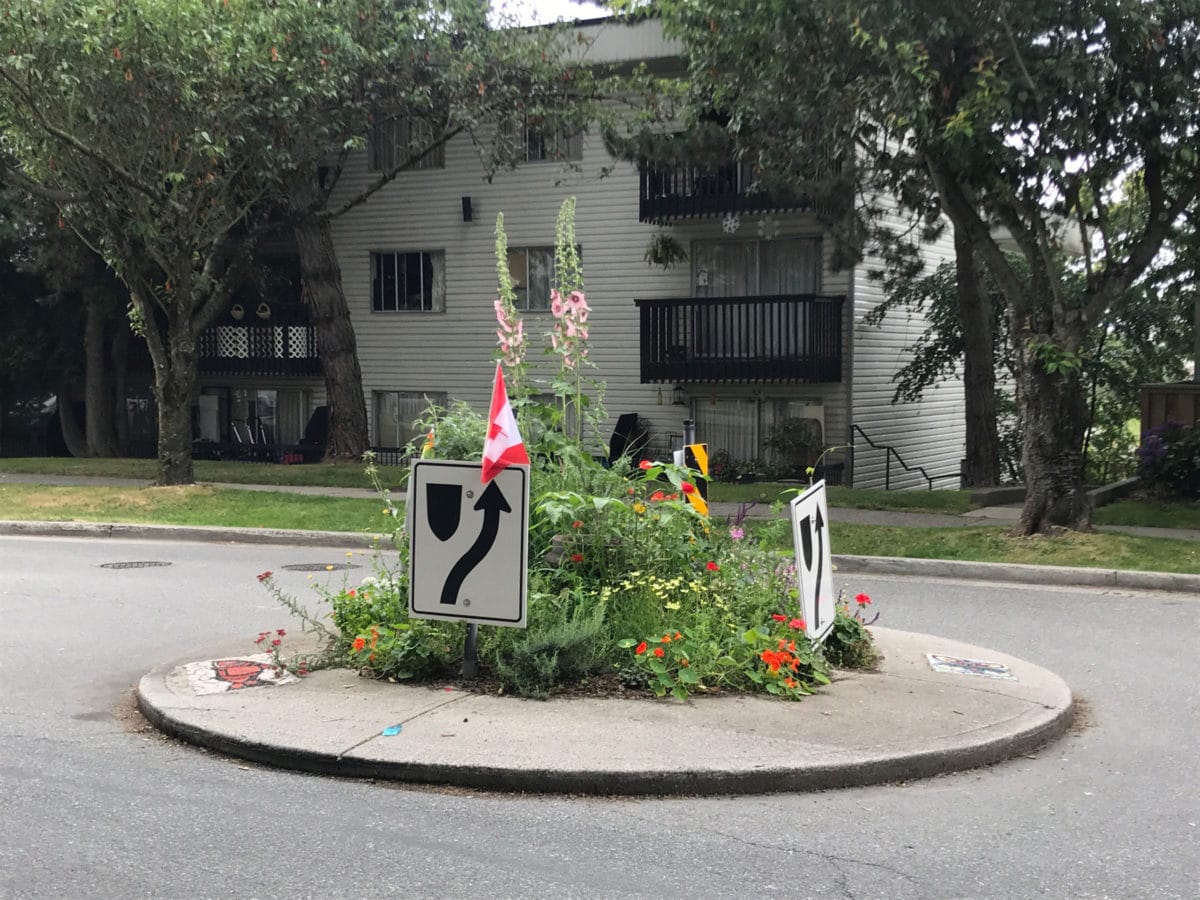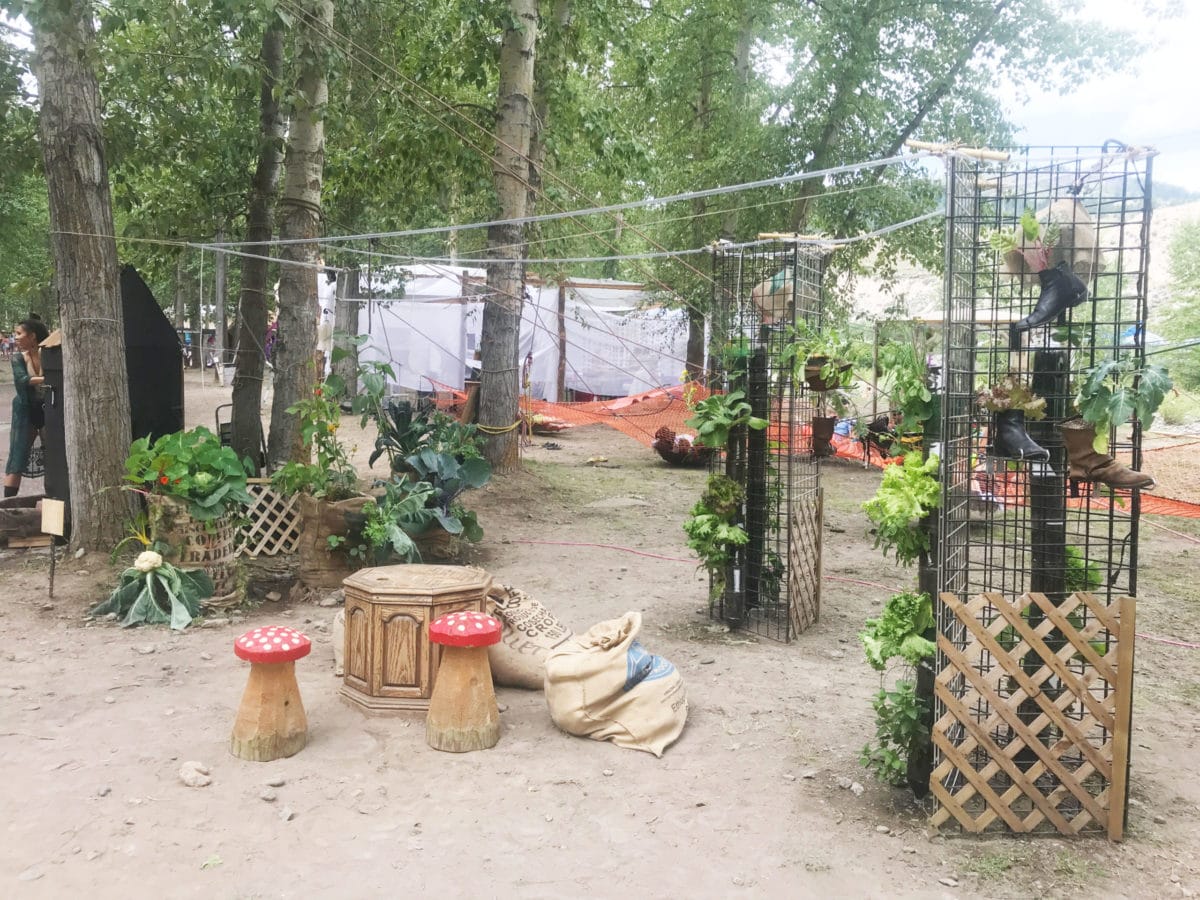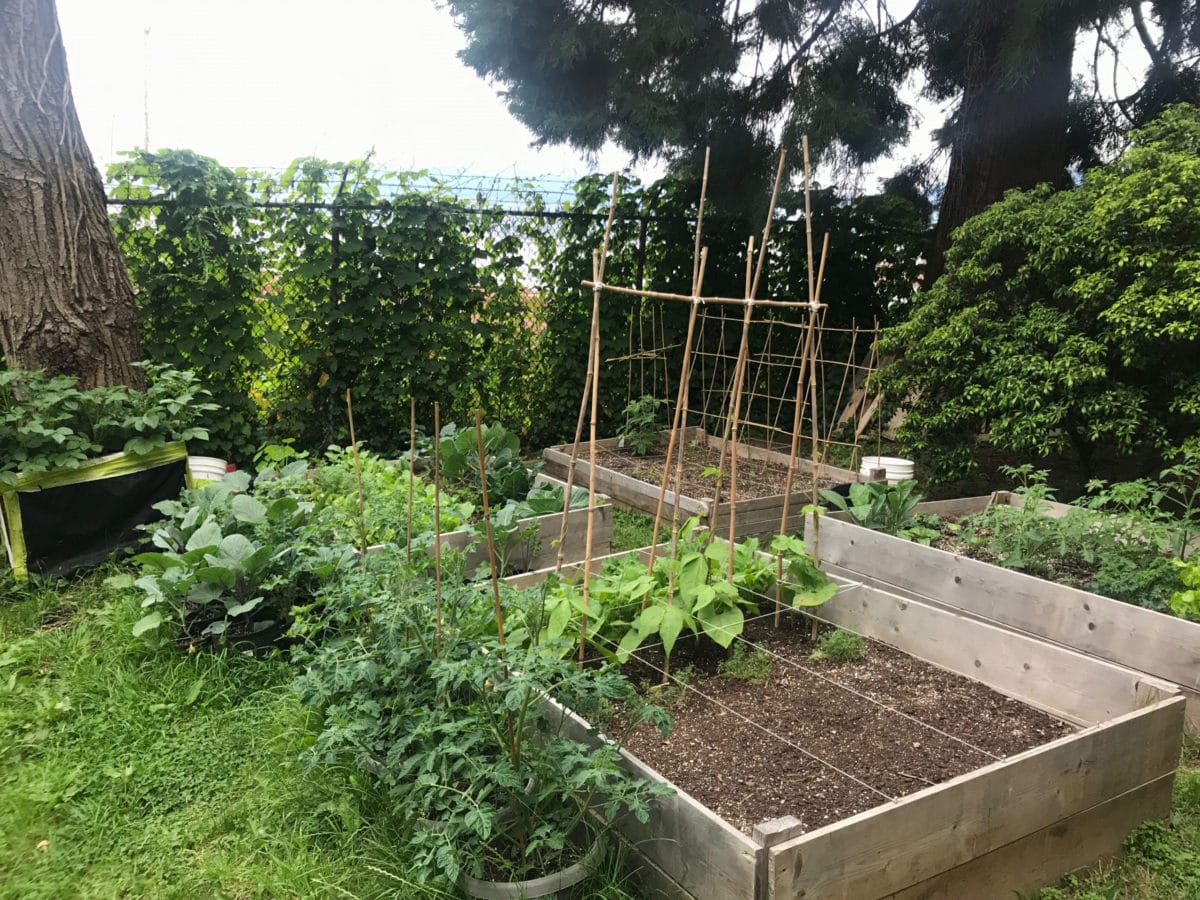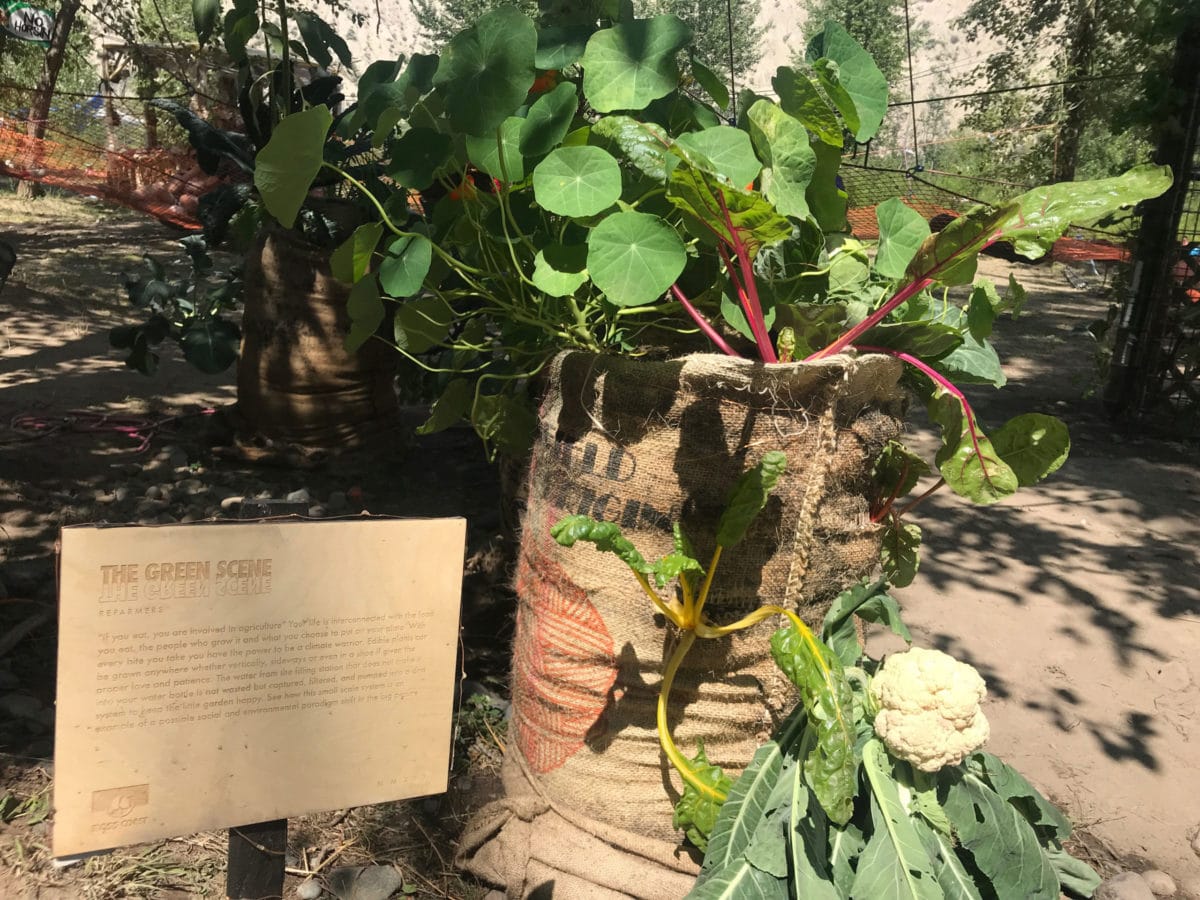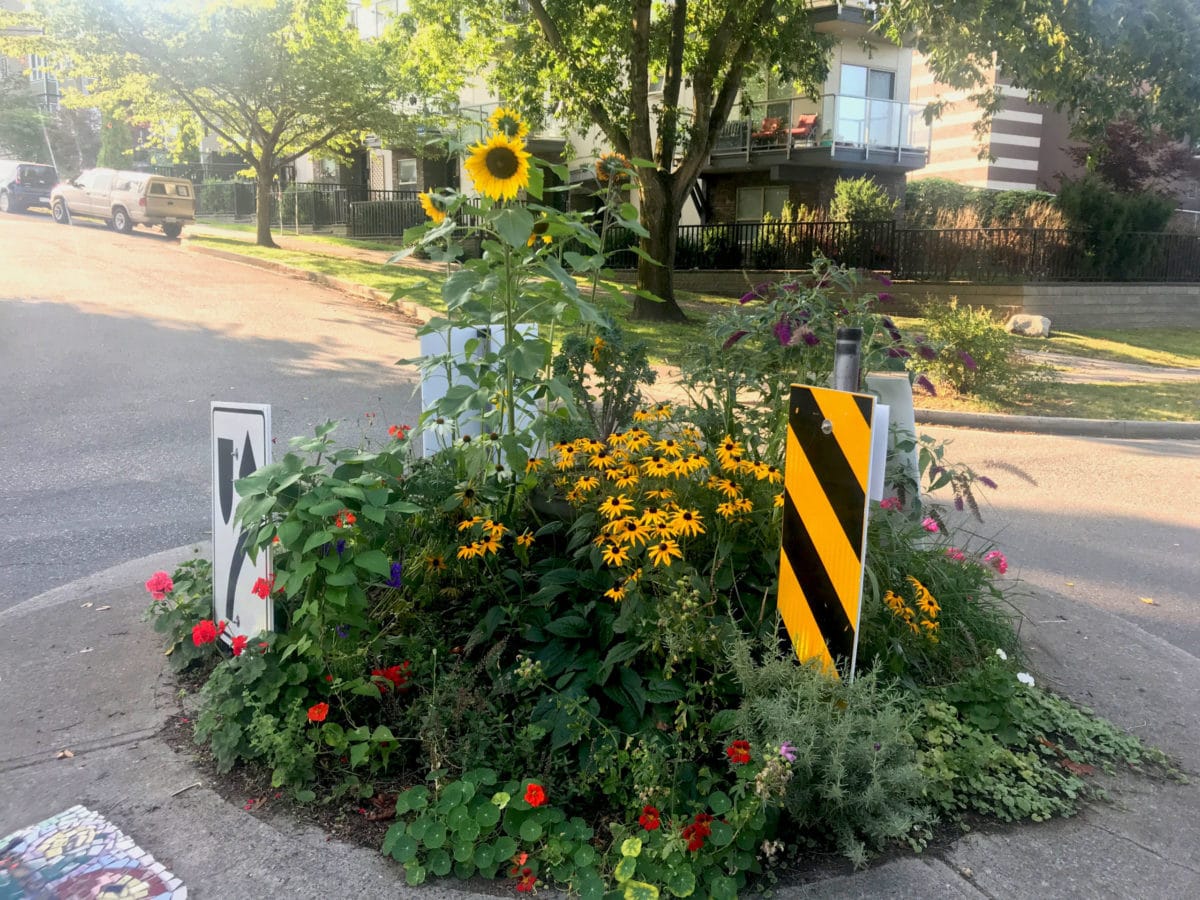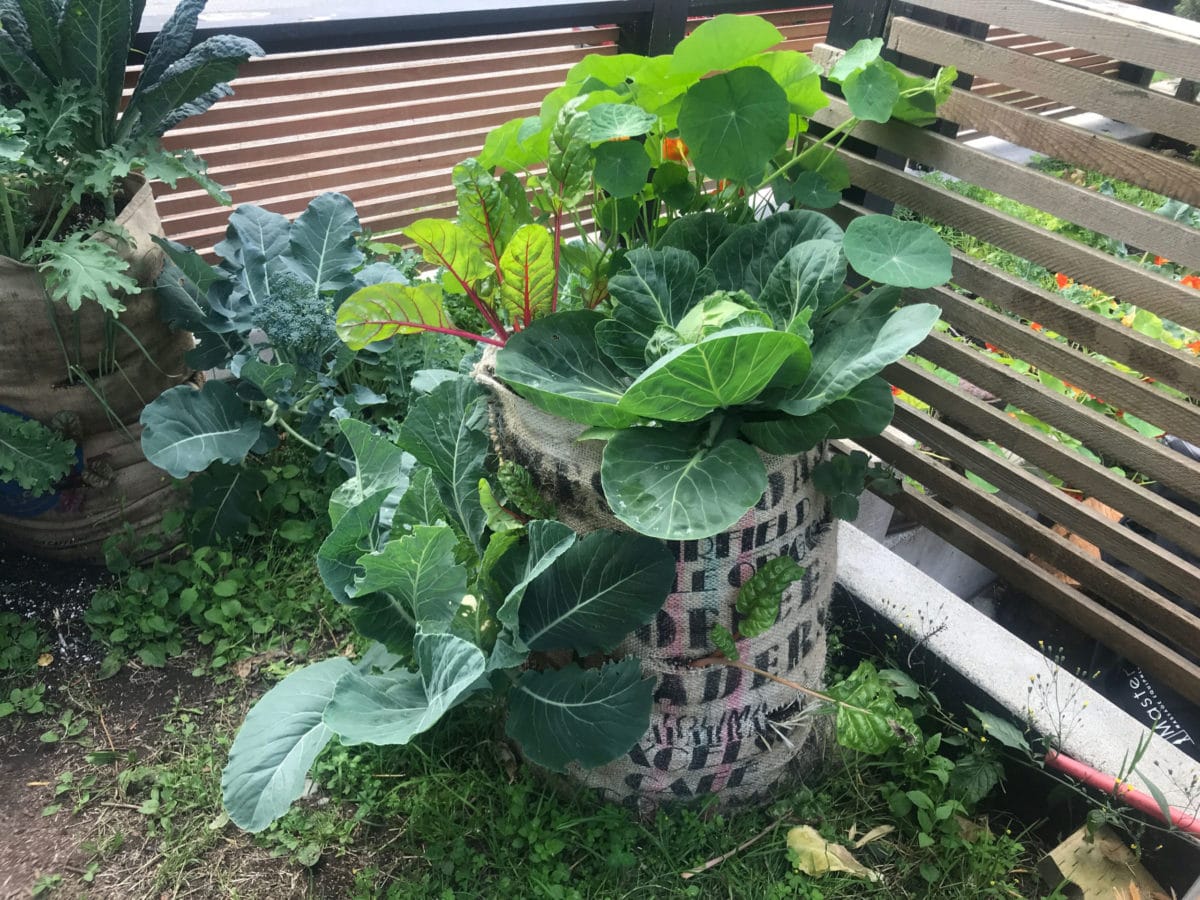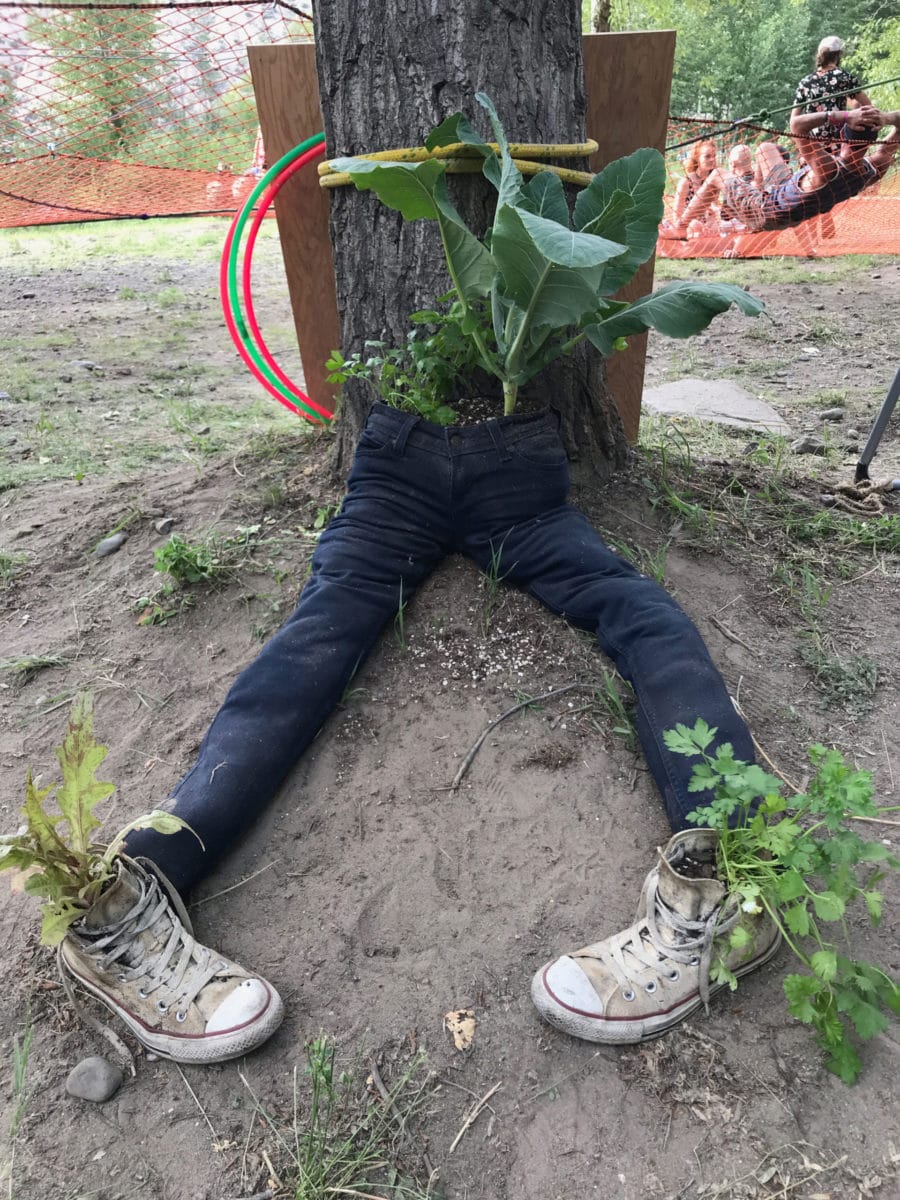------- URBAN FOOD GROWING -------
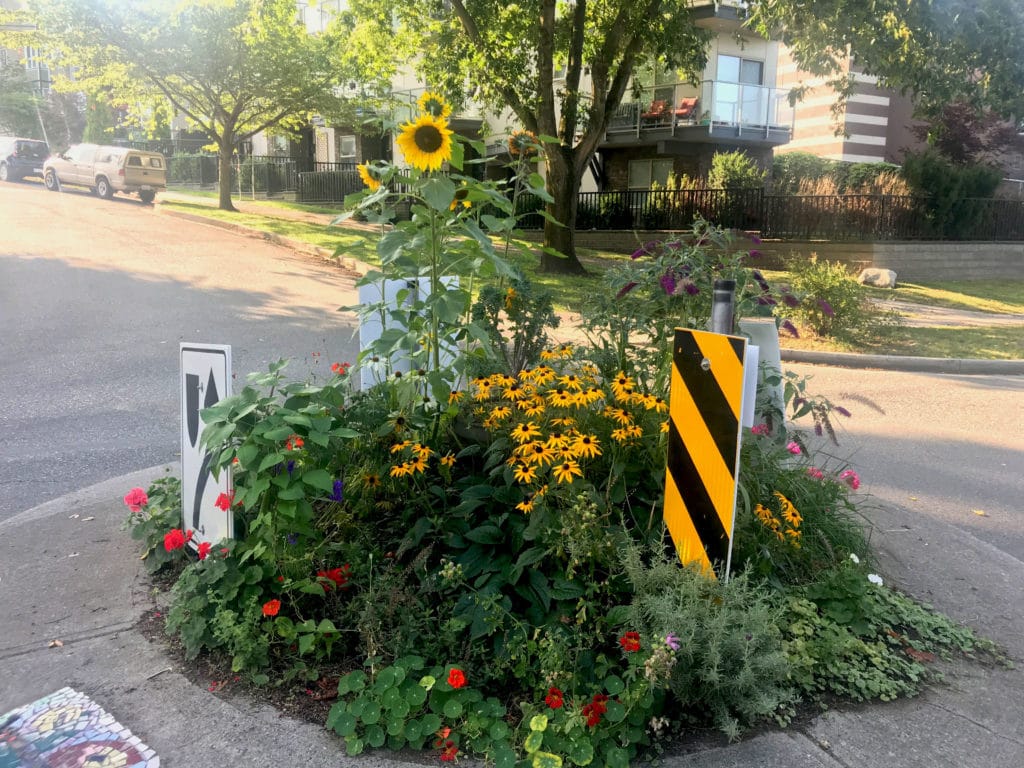
Traffic Circle Garden
In partnership with the City of Vancouver's Green Streets Program, we actively engage in foodscaping, creating a hub for interacting with folks from all walks of life, inspiring neighbours to take action in keeping our neighbourhood clean, safe and cared for. Neighbours inspire one another to generate positive social interactions while beautifying the place they call home. The roundabout in front of our building is a space where neighbours demonstrate buds of social cohesion as they reach out and speak about what we share in common. Seasonal successions signal conversations that range from talking about spring flowers to late season tactics to foil aphid attacks on food plants, what to plant, seed saving and sharing. In the greening and foodscaping of cities, there exists the possibility of interconnected relationships that help elevate communities into harmonious places to live.
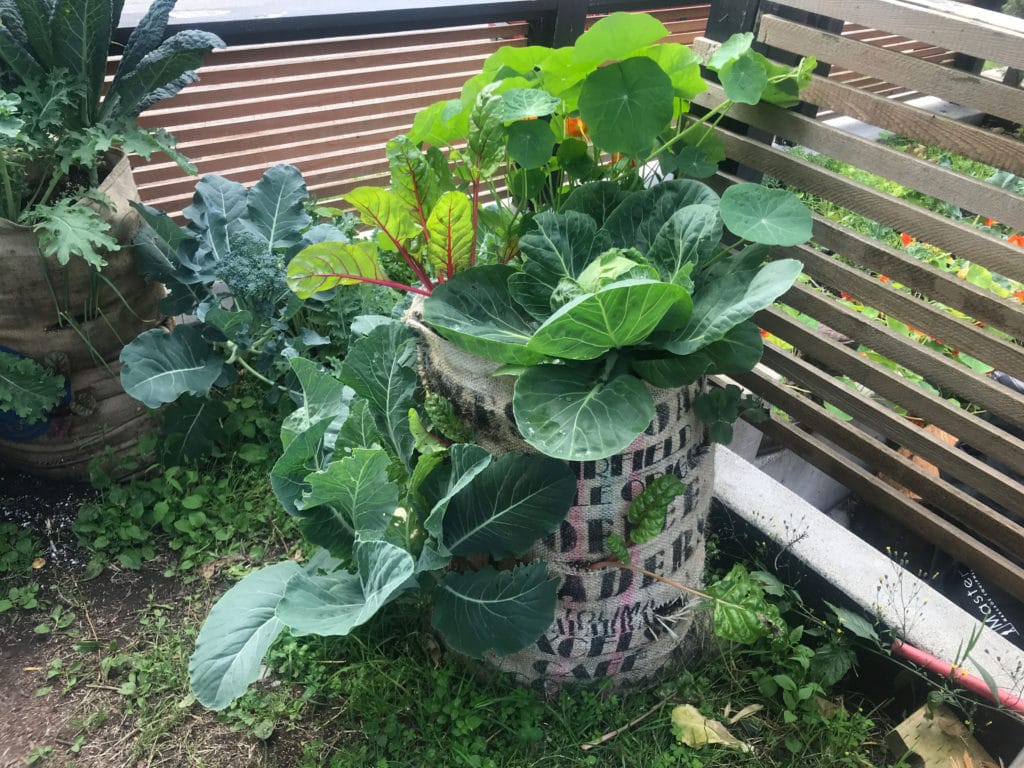
Sack Gardens & Small Space Food Growing
Kampala and Nairobi taught us the ingenuity of growing food in sacks and how to maximize scarce resources like land by growing vertically. This garden is perfect for when there is not much growing space available or the ground is contaminated. Plants will grow in any direction toward the sun, so planting food all around the sides and top of the sacks is a great way to densely grow a lot of food in a small growing space. All that is needed is some soil, sacks which are usually free from the local coffee roasters, compost, seeds and seedlings. Check out the YouTube tutorial below. For urban food growing, we like to use worm (or vermicompting) compost which is a great way to create high quality nutrients for soil without needing much space and without creating an odour.
Wall St. Seed Library
This is the time for small grassroots actions like sharing seeds and growing food in urban areas.
Margaret Mead’s quote, “Never doubt that a small group of thoughtful, committed citizens can change the world. Indeed, it’s the only thing that ever has “ is as relevant now as it ever was in the past.
Our small actions have impact. They create ripple effects and inspire others to walk down the same path.
We have started a mini seed library in our traffic circle garden in East Vancouver and we hope that lots of little gardens will start to sprout all over the community.
This is the time to regenerate our relationship with soil. This is the time to reconnect with our food. This is the time to find freedom in food growing.
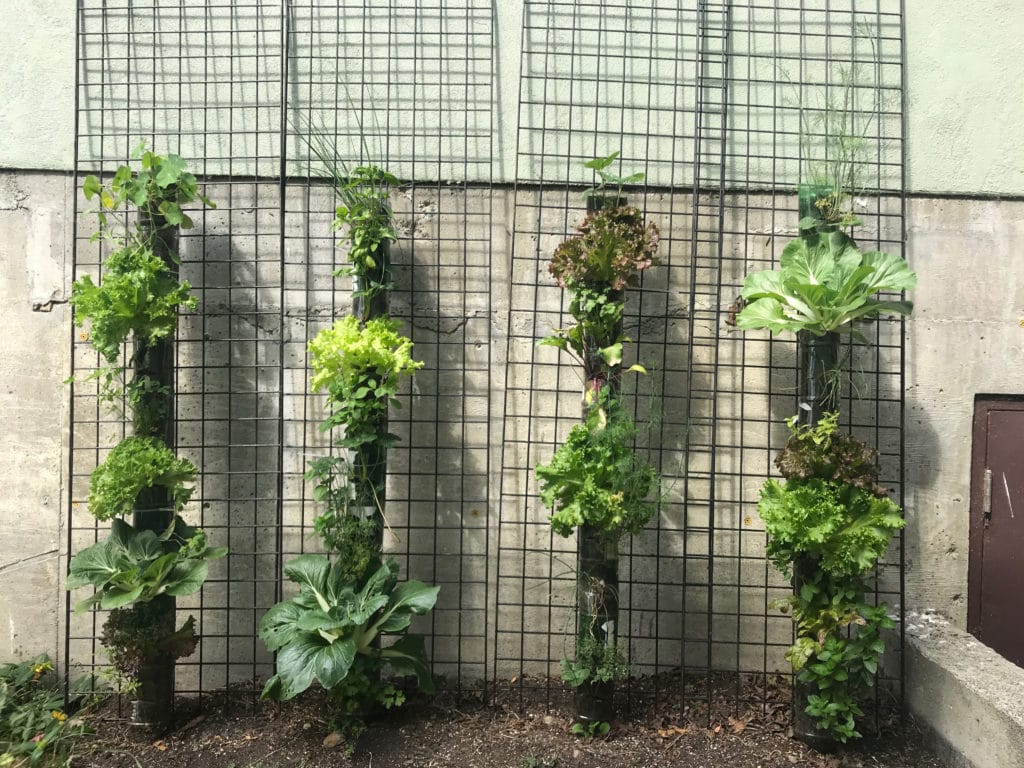
Vertical Food Growing
These recycled 2 litre pop bottle garden towers are exploding in bok choi, various kinds of lettuce, herbs like chives, mint, holy basil, italian basil, dill, sage and cilantro, nasturtiums, strawberries and even some baby beets! The pop bottles had the bottoms cut off, were inverted and then stacked for drainage. These were grown at the side of our building and transported to a music festival as part of an interactive garden inspired art installation. Edible plants can be grown anywhere whether vertically, sideways or even in a shoe if given the proper care and patience. With a bit of determination, anybody can grow food anywhere and discover the many therapeutic benefits of cultivating food.
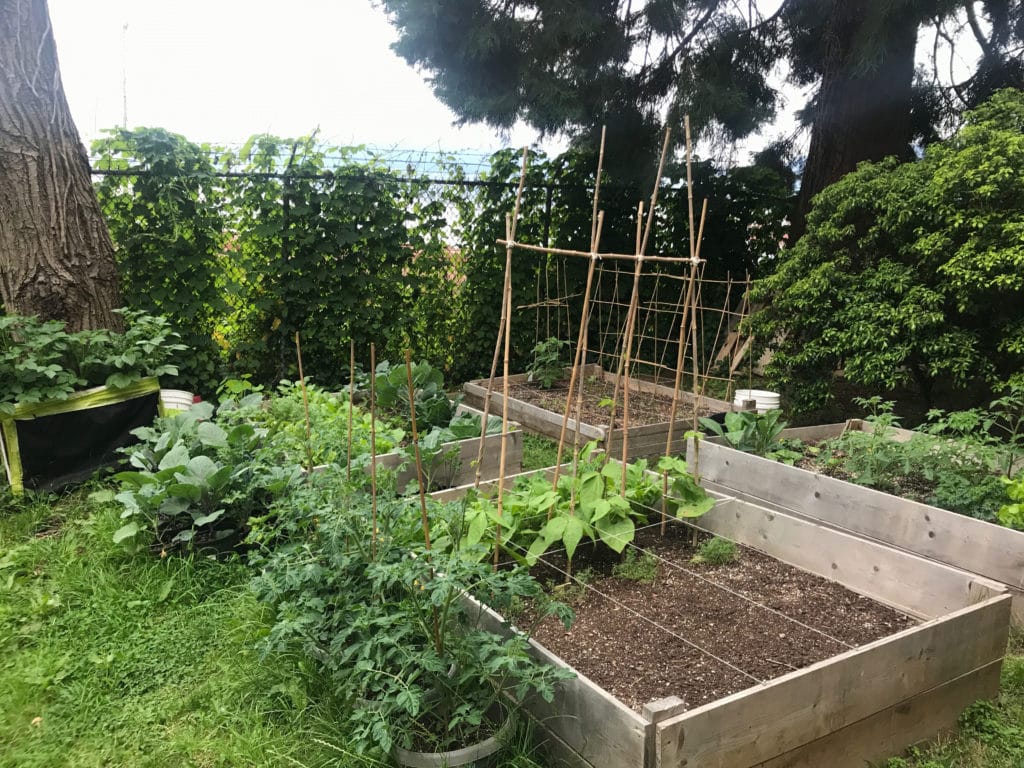
Community Gardening
Food growing and agriculture historically were the glue that held communities together and it still does that today when executed in an intentional way. We built four, raised bed garden boxes behind our building in East Vancouver and watched social cohesion grow. Over the growing season social relationships flourished as we shared learning experiences and observed progress from the variety of different gardening styles. The raised beds became a place and activity for neighbours to learn about each other and growing food. The positive social transformation that occurred in the building subsequently are a true testament to the power of community food growing. Food growing with others helps form natural bonds that we need for living a healthy lifestyle. It is a social lubricant and collaborative effort that results in safer living spaces and a desire to contribute to community development. This is a small example of what is possible in the big picture.
